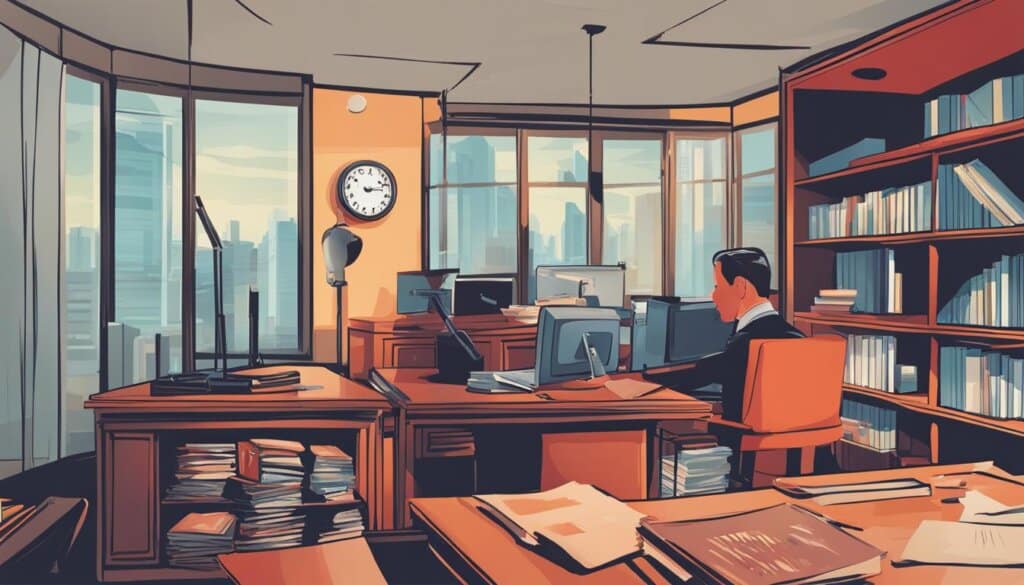Table of Contents
The Digital Millennium Copyright Act (DMCA) has been a cornerstone of copyright protection in the digital age. It serves a crucial purpose in safeguarding the rights of content creators against online theft and unlawful reproduction. By implementing a comprehensive set of regulations, the DMCA aims to combat unauthorized activities that infringe upon copyrights, including downloading copyrighted files without permission or distributing them without proper authorization. Violating the DMCA can lead to severe consequences, such as civil and criminal penalties, including fines and imprisonment.
The DMCA addresses a wide range of copyrighted materials, covering music, movies, text, and more. Its purpose is to deter individuals from engaging in activities that undermine the rights of copyright holders. This includes actions like forwarding copyrighted material through email, downloading unauthorized copies from file-sharing networks, or transferring copyrighted material via instant messaging services. Universitie and Internet Service Providers (ISP) are also subject to the DMCA, which requires them to comply with copyright infringement notices and take appropriate actions to prevent further violations.
Key Provisions of the Digital Millennium Copyright Act
The Digital Millennium Copyright Act (DMCA) is a comprehensive legislation that addresses various aspects of copyright protection in the digital age. It consists of five main sections, each serving a specific purpose to safeguard the rights of copyright holders and establish guidelines for online service providers (OSPs).
Title I: Protection of Technological Measures
This provision of the DMCA focuses on implementing international treaties and making it illegal to bypass technological measures designed to protect copyrighted material. It prohibits the use or sale of technologies that enable unauthorized access to copyrighted works.
Title II: Safe Harbors for OSPs
To protect OSPs from direct liability for copyright infringement committed by their users, Title II establishes safe harbors. In order to qualify for these protections, OSPs must meet certain requirements, including implementing a notice and takedown procedure and terminating the accounts of repeat infringers.
Title III: Online Copyright Infringement Liability Limitation Act (OCILLA)
OCILLA provides a safe harbor for OSPs regarding user-uploaded content. It shields OSPs from monetary damages if they promptly remove infringing material upon receiving a valid takedown notice. This provision encourages OSPs to cooperate with copyright holders and take action against infringement.
Title IV: Miscellaneous Provisions
Under Title IV, the DMCA covers a range of miscellaneous provisions related to library use, distance learning education, and motion picture collective-bargaining agreements. These provisions address specific copyright issues in these contexts.
Title V: Protection of Boat Hull Designs
The DMCA also includes Title V, which amends copyright laws to protect the design of boat hulls. This provision ensures that boat hull designs are afforded the same copyright protections as other creative works.
Notice and Takedown System
One of the key provisions of the DMCA is the establishment of a notice and takedown system. This system allows copyright holders to submit infringement notices to OSPs when they believe their copyrighted material has been used without permission. Upon receiving a valid notice, OSPs are required to promptly remove or disable access to the allegedly infringing content.
| DMCA Provisions | Description |
|---|---|
| Title I | Protection of Technological Measures |
| Title II | Safe Harbors for OSPs |
| Title III | Online Copyright Infringement Liability Limitation Act (OCILLA) |
| Title IV | Miscellaneous Provisions |
| Title V | Protection of Boat Hull Designs |
| Notice and Takedown System | Mechanism for copyright holders to report infringement to OSPs |
The key provisions of the DMCA, including safe harbors for OSPs, OCILLA, and the notice and takedown system, play a vital role in balancing the protection of copyright holders’ rights with the growth and innovation of the digital era.
Consequences of Digital Millennium Copyright Act Violations
Violating the DMCA can lead to severe consequences, both in terms of civil and criminal penalties.
Civil Penalties
When found guilty of copyright infringement under the DMCA, individuals may face civil penalties that can have significant financial implications. These penalties may include:
- Paying damages to the copyright owner
- Covering legal fees incurred by the copyright owner
The minimum fine for downloading each copyrighted file without authorization can be as high as $750.
Criminal Penalties
In cases of willful infringement, where the violation is intentional and purposeful, criminal penalties may be imposed. The consequences of criminal DMCA violations can include:
- Imprisonment for up to five years
- Fines of up to $500,000
Copyright Infringement Lawsuits
Copyright owners have the right to file infringement lawsuits against those who have violated their rights under the DMCA. In such lawsuits, copyright owners may seek both actual and statutory damages. The purpose of these lawsuits is to compensate the copyright owner for the losses incurred due to the infringement.

Impacts and Benefits of the Digital Millennium Copyright Act
The implementation of the Digital Millennium Copyright Act (DMCA) has had significant impacts on copyright protection in the digital age. One of the key benefits of the DMCA is its ability to criminalize the circumvention of technological protection measures, promoting the security and integrity of copyrighted works. This provision ensures that creators have the necessary tools to safeguard their intellectual property and preserve their rights in the digital landscape.
Furthermore, the creation of safe harbors for Online Service Providers (OSPs) under the DMCA has brought immense benefits to the online ecosystem. OSPs can now operate without fear of direct liability for user-generated infringement, encouraging the growth of platforms, and fostering innovation. This provision not only protects the interests of OSPs but also promotes freedom of expression by providing a conducive environment for user-generated content and creative collaboration.
An essential aspect of the DMCA is the notice and takedown system, which facilitates the resolution of copyright disputes. This system ensures that copyright holders’ rights are protected by allowing them to submit infringement notices to OSPs. Simultaneously, individuals who believe their content has been mistakenly removed can contest these takedown requests. This mechanism strikes a balance between protecting copyright holders and preserving the rights of content creators, promoting fairness and accountability in the digital age.
The DMCA acknowledges the value of preserving and maintaining copyrighted works in digital formats. It allows certain exemptions for institutions such as libraries and archives, enabling the long-term access and preservation of cultural heritage. These provisions ensure that valuable works are protected and readily available for future generations, contributing to the collective knowledge and cultural development.
Please review and let me know if you need any further assistance.
FAQ
What is the purpose of the Digital Millennium Copyright Act (DMCA)?
The purpose of the DMCA is to protect copyright holders from online theft and unlawful reproduction or distribution of their works, ensuring their rights are safeguarded and deterring unauthorized activities.
What are the key provisions of the Digital Millennium Copyright Act?
The DMCA consists of five main sections. Title I makes it illegal to bypass technological measures that protect copyrighted material and prohibits the sale or use of technology enabling unauthorized access to copyrighted works. Title II establishes safe harbors for online service providers (OSPs) to protect them from direct liability for copyright infringement by their users. Title III includes the Online Copyright Infringement Liability Limitation Act (OCILLA), providing a safe harbor for OSPs regarding user-uploaded content. Title IV covers miscellaneous provisions related to library use, distance learning education, and motion picture collective-bargaining agreements. Title V amends copyright laws to protect the design of boat hulls.
What are the consequences of violating the Digital Millennium Copyright Act?
Violating the DMCA can result in both civil and criminal penalties. Civil penalties may include paying damages to the copyright owner and covering their legal fees. The minimum fine for each downloaded file can be 0. Criminal penalties, imposed for willful infringement, can include imprisonment for up to five years and fines of up to 0,000. Copyright owners can also file infringement lawsuits in federal court, seeking actual and statutory damages.
What are the impacts and benefits of the Digital Millennium Copyright Act?
The DMCA has significant impacts on copyright protection in the digital age. It criminalizes the circumvention of technological protection measures, promotes the security and integrity of copyrighted works, and fosters innovation. The creation of safe harbors for OSPs encourages the growth of online platforms and freedom of expression. The notice and takedown system facilitates the resolution of copyright disputes, protects rights while providing a process to contest mistaken takedowns. The DMCA also recognizes the importance of preserving and maintaining copyrighted works in digital formats, enabling long-term access and preservation of cultural heritage.












